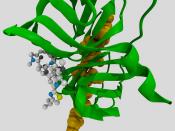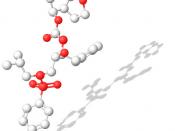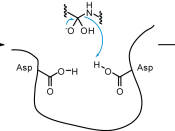Introduction
Proteases are the single class of enzymes which occupy a pivotal position with respect to their applications in both physiological and commercial fields. Proteolytic enzymes catalyze the cleavage of peptide bonds in other proteins. Proteases are degradative enzymes which catalyze the total hydrolysis of proteins. Advances in analytical techniques have demonstrated that proteases conduct highly specific and selective modifications of proteins such as activation of zymogenic forms of enzymes by limited proteolysis, blood clotting and lysis of fibrin clots, and processing and transport of secretory proteins across the membranes. Proteases represent one of the three largest groups of industrial enzymes and account for about 60% of the total worldwide sale of enzymes Proteases execute a large variety of functions, extending from the cellular level to the organ and organism level, to produce cascade systems such as hemostasis and inflammation. They are responsible for the complex processes involved in the normal physiology of the cell as well as in abnormal pathophysiological conditions.
Their involvement in the life cycle of disease-causing organisms has led them to become a potential target for developing therapeutic agents against fatal diseases such as cancer and AIDS. Proteases have a long history of application in the food and detergent industries. Their application in the leather industry for dehairing and bating of hides to substitute currently used toxic chemicals is a relatively new development and has conferred added biotechnological importance.
The inability of other proteases (plant and animal) to meet current world demands has led to an increased interest in microbial proteases. Microorganisms represent an excellent source of enzymes owing to their broad biochemical diversity and their susceptibility to genetic manipulation. Microbial proteases account for approximately 40% of the total worldwide enzyme sales. Proteases from microbial sources are preferred to the enzymes from plant and animal sources...


